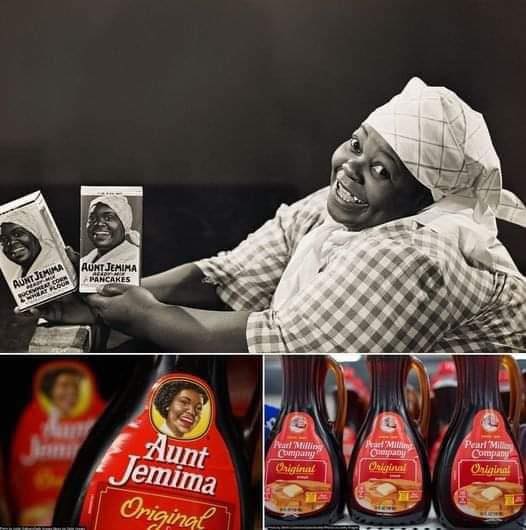Great-Grandson of “Aunt Jemima” Speaks Out: “It’s an Injustice to My Family”

In 2020, Quaker Oats made headlines when they announced they would retire the “Aunt Jemima” brand, citing its origins in racial stereotypes and the broader push for social justice inspired by the Black Lives Matter movement.
But not everyone supported the decision.
Just one day after the news broke, Marine Corps veteran Larnell Evans Sr., great-grandson of one of the women who portrayed Aunt Jemima, spoke out against the move, calling it a blow to his family’s legacy.
“This is an injustice for me and my family,” Evans said. “This is part of my history. After making money from slavery for years, now the company wants to erase it like it never happened.”
Evans is the great-grandson of Anna Short Harrington, who took on the role of Aunt Jemima in 1935 after Quaker Oats discovered her serving pancakes at a fair. Harrington traveled across the U.S. and Canada for over two decades, representing the brand and helping build its national image.
Before Harrington, the face of Aunt Jemima was Nancy Green, a formerly enslaved woman who was hired by Quaker to represent the brand at the 1893 Chicago World’s Fair. Though Quaker later referred to Green as a “storyteller and missionary,” many critics argue that her portrayal was rooted in racial caricature.
Still, Evans says the company’s decision to now erase that image entirely doesn’t sit right.
“She worked for them for 20 years. This woman served people long after slavery ended. That was her job—Aunt Jemima,” Evans said. “And now they want to erase her name and legacy? How do you think I feel as a Black man watching this happen?”
Evans expressed frustration that corporations profited from racially charged imagery for decades and are now distancing themselves without acknowledging the full history or compensating the families involved.
“How many white people grew up seeing Aunt Jemima at the breakfast table? How many companies made money off her image, and how many of us saw a dime of that?” he said. “Now they just want to erase it all, like it never happened?”
What’s your take on this issue? Should brands erase controversial history, or find ways to acknowledge and honor it responsibly?
🗣 Drop your thoughts in the comments, and if you found this topic worth discussing, share it on Facebook to keep the conversation going.